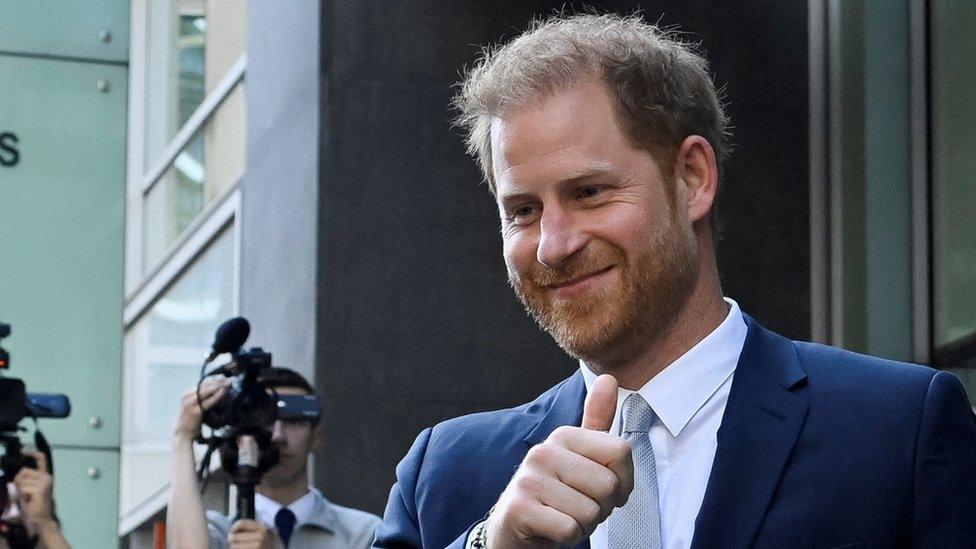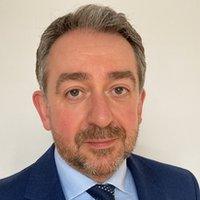Piers Morgan and hacking: What the Prince Harry case heard
- Published
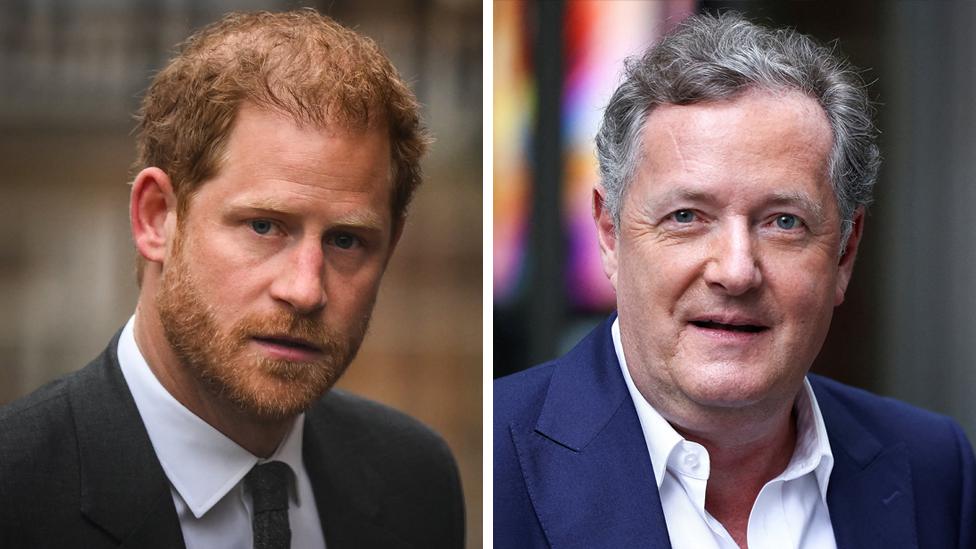
Prince Harry has hailed the phone hacking ruling as a "great day for truth".
And the truth is, according to the judgement, that editors and powerful executives at the Mirror Group Newspapers knew of phone hacking - and the judge accepted evidence that it included former Daily Mirror editor Piers Morgan.
In the time it took Mr Justice Fancourt to deliver a summary of his judgement in open court, the celebrity TV presenter's years of claiming it was nothing to do with him withered, legally-speaking, on the vine.
Over the course of the seven weeks, the High Court heard lawyers for Prince Harry argue that there was an evidence trail that linked knowledge of hacking to Mr Morgan and a string of other executives and in-house lawyers.
Not all of that case has been proven - and the allegations against Mr Morgan were fragmentary.
There was no smoking gun - but there was a tapestry of limited but well-sourced incidents.
Following the judgement Mr Morgan insisted he "never hacked a phone or told anyone else to hack a phone".
Watch: Piers Morgan denies phone hacking after Harry judgement
Mr Morgan was the Daily Mirror's editor between 1995 and 2004 - and, as my colleague Tom Symonds has previously reported, he was largely unscathed by the outcome of first hacking case against the group in 2015.
The most important of the claims against him this time around came from the now royal author Omid Scobie.
Back in 2002 he was a student intern who fancied a career in entertainment journalism.
He told the court, while working on the Mirror's "3am" entertainment desk, he had witnessed Mr Morgan discuss with a journalist an article about Kylie Minogue - and the then editor asked how confident they were about the story.
Mr Morgan was told, Mr Scobie recalled, that the source had been a voicemail.
Mr Justice Fancourt said an article about Ms Minogue appeared in the paper around the time Mr Scobie had been on work experience, under the byline of "a well-known phone hacker", James Scott.
There was also evidence that a private investigator had billed the paper for obtaining Ms Minogue's mobile phone number and that of her then partner, James Gooding.
Mr Justice Fancourt said: "I found Mr Scobie to be a straight-forward and reliable witness and I accept what he said about Mr Morgan's involvement in the Minogue/Gooding story.
"No evidence was called by MGN to contradict it."
Another crucial piece of evidence came from Benjamin Wegg-Prosser, who was once communications chief for Tony Blair in Downing Street.
In the same year that Mr Scobie had witnessed the chat about Ms Minogue, Mr Wegg-Prosser had dinner with Mr Morgan and asked him how his newspaper had discovered that the England football manager Sven Goran-Eriksson had an affair with television presenter Ulrika Jonson.
"Mr Morgan responded to my question by initially asking me which network provider I used for my mobile phone," he wrote in his witness statement to the court.
"Mr Morgan told me the default PIN for that network. He then explained that the default PIN numbers were well known and rarely changed, which is how mobile phone messages could be accessed remotely. He said to me, 'That was how we got the story on Sven and Ulrika', with a smile, or words to that effect."
That evidence was not challenged by MGN and was said by the judge to "speak for itself".
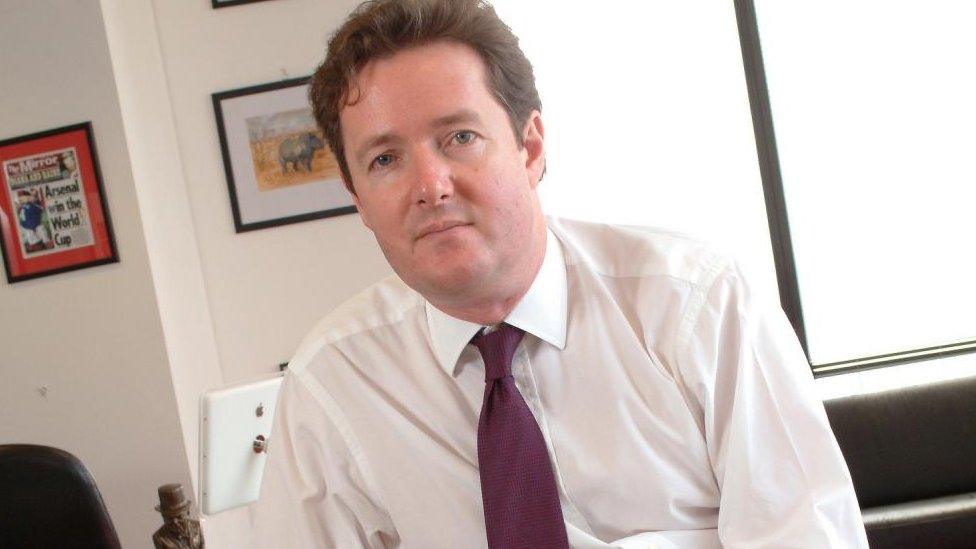
Piers Morgan in 2003 when he was editor of the Daily Mirror
David Seymour was once the Mirror's political editor. He was not involved in phone hacking and gave evidence about his observations and concerns about Piers Morgan.
He told the court that his former boss was "unreliable and boastful [and] apt to tell untruths when it suited him".
He recalled that in March 2001 Mr Morgan had played a recording of a voicemail in the newsroom of Paul McCartney singing a Beatles song to Heather Mills, his soon-to-be wife.
The court head that the recording had been lent to Mr Morgan by Neil Wallis, then editor of The People.
The Mirror Group's lawyer later challenged Mr Seymour's account of once hearing that Piers Morgan had shown off about phone hacking to the head of BT.
The judge's conclusion? "Mr Seymour struck me as a man of intelligence and integrity. I accept his evidence without hesitation."
But Mr Morgan was not the only one who knew what was going on, said the judge.
Mr Justice Fancourt said other editors were aware of hacking and two directors knew before the end of 2011: Paul Vickers, group legal director, and Sly Bailey, the chief executive officer.
"The board as a whole was not told about it," the judge told the court.
"That was because the editors of the three newspapers, the editorial managers of the company and Ms Bailey and Mr Vickers did not report what they knew, or suspected, to the board.
"I have found that Mr Vickers certainly knew about phone hacking from about the end of 2003, but quite possibly before then.
"Ms Bailey knew or - what in law amounts to the same thing - turned a blind eye to it from about the end of 2006.
"The likelihood of extensive illegal activity should have been investigated properly.
"Instead, it was concealed from the board, from Parliament in 2007 and 2011, from the Leveson Inquiry, from shareholders, and from the public for years - and the extent of it was concealed from claimants in the Mirror Newspapers hacking litigation and even from the court at and before the trial in 2015."
Hours after the ruling was delivered Mr Morgan gave a forceful statement outside his home, denying his involvement in phone hacking.
As well as taking aim at the prince among others, Morgan denied personally hacking a phone or ordering someone to and said "nobody has produced any actual evidence to prove that I did".
He added he had not been called as a witness by either side in the case or been asked for a statement and said he would have "very happily agreed to do either or both of those things had I been asked".
- Published15 December 2023
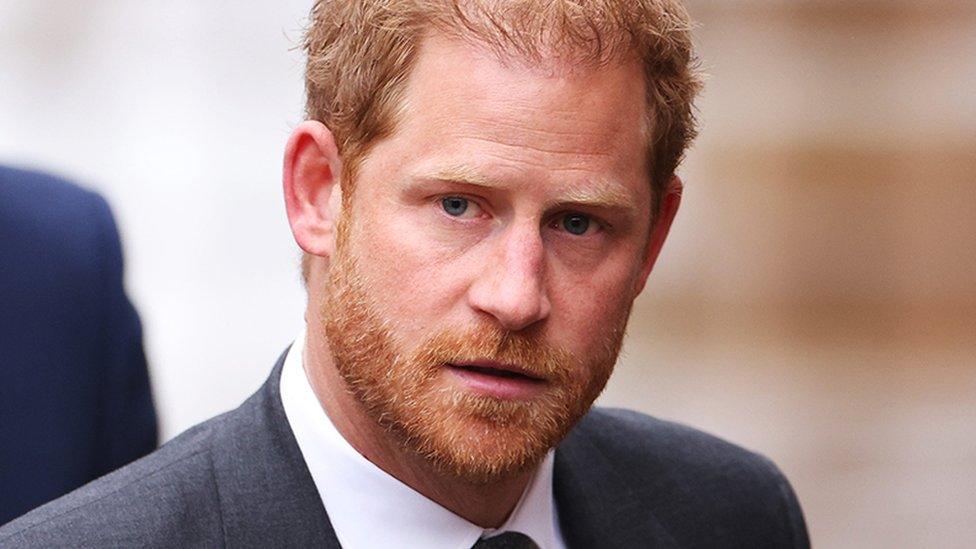
- Published6 June 2023
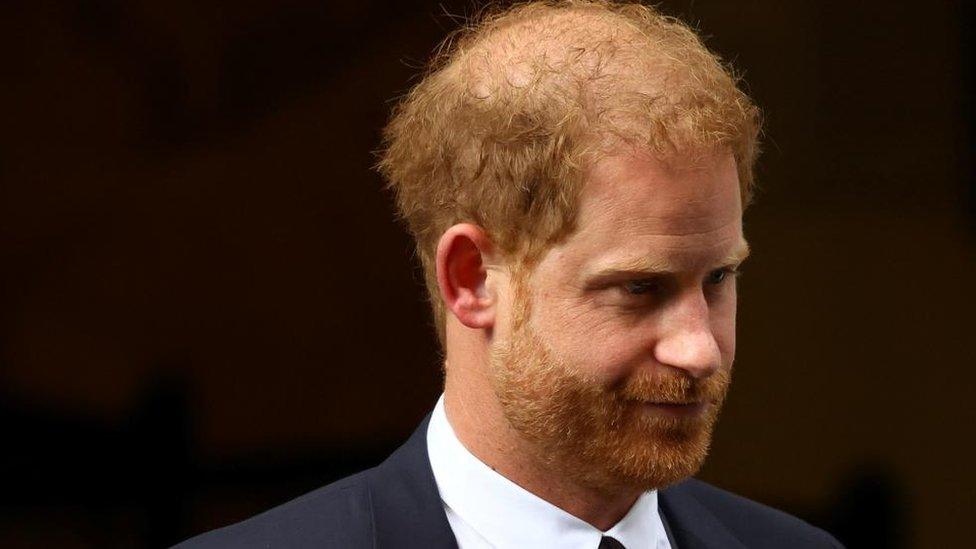
- Published3 September 2023
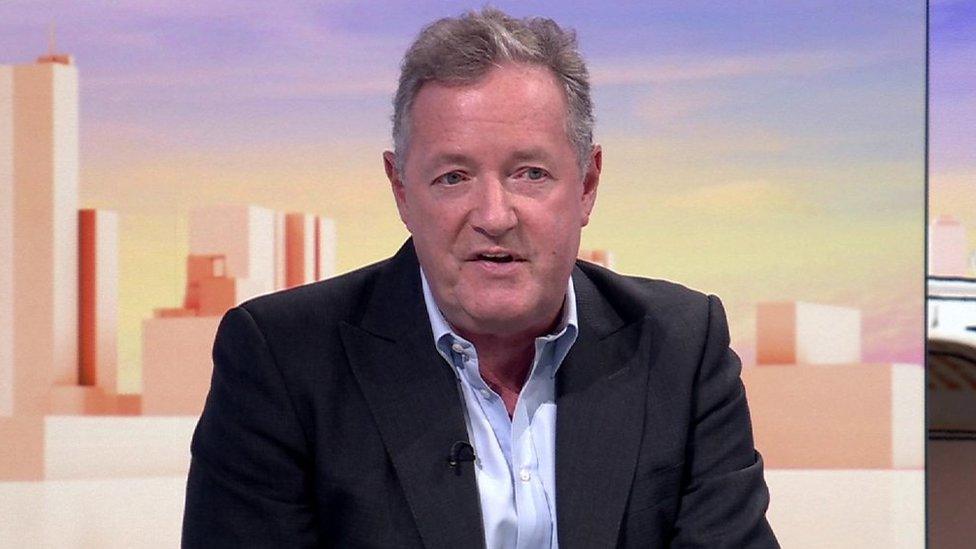
- Published28 June 2023
